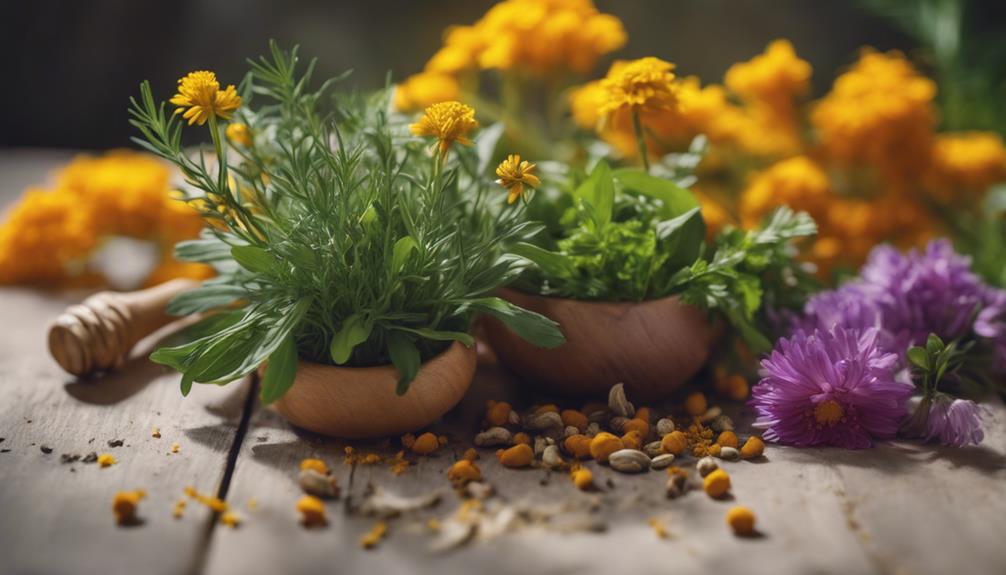Holistic medicine, focusing on the interconnectedness of physical, emotional, and spiritual well-being, offers a thorough approach to health. By considering the whole person, not just symptoms, practitioners provide individualized care, understanding unique lifestyles, stress levels, and emotional well-being. With a range of effective treatment modalities, including acupuncture, herbal medicine, and nutritional therapy, holistic medicine has evolved from fringe to mainstream healthcare, proving effective in preventive care and chronic disease management. As research continues to uncover the science behind holistic medicine, the path to true healing becomes increasingly clear, and exploring these practices further reveals the vast potential for transformative wellness.
Key Takeaways
• Holistic medicine treats the whole person – physical, emotional, and spiritual – to achieve true healing and wellness.
• Diverse treatment modalities like acupuncture, herbal medicine, and nutritional therapy provide a multidimensional approach to healthcare.
• Research supports the effectiveness of holistic medicine in preventive care and chronic disease management, correlating with physiological responses.
• Patient-centered care prioritizes individualized attention, addressing unique lifestyle, stress levels, and emotional well-being for optimal healing.
• Exploring holistic practices like sound therapy, yoga, and Emotional Freedom Techniques can promote overall well-being and spiritual growth.
Understanding Holistic Medicine
By addressing the interconnectedness of physical, emotional, and spiritual health, holistic medicine offers a thorough approach to wellness that sets it apart from conventional medicine. This all-encompassing approach considers the whole person, not just their symptoms, to achieve peak health.
Holistic medicine's roots trace back to ancient civilizations like Traditional Chinese Medicine and Ayurveda, which have evolved over the years by incorporating modern techniques and scientific advancements. Today, it has evolved from fringe territory to mainstream healthcare, particularly effective in preventive care and chronic disease management.
Effective Treatment Modalities

Holistic medicine's diverse treatment modalities, including acupuncture, herbal medicine, and nutritional therapy, offer a range of effective solutions for addressing the intricate needs of patients. These modalities tackle different aspects of well-being, providing an all-encompassing approach to healthcare.
Acupuncture, for instance, balances the body's energy, while herbal medicine utilizes plant remedies to promote healing. Nutritional therapy, on the other hand, emphasizes diet and nutrition to prevent and manage diseases. By incorporating these modalities, holistic medicine provides a multidimensional approach to healthcare, addressing the physical, emotional, and spiritual needs of individuals.
This patient-centered approach has proven effective in preventive care and chronic disease management, making holistic medicine a viable alternative to conventional medicine.
The Science Behind It

Research studies have consistently demonstrated a strong correlation between the principles of holistic medicine and measurable physiological responses, shedding light on the scientific foundations of this approach.
For instance, acupuncture has been shown to stimulate the release of endorphins, the body's natural painkillers, and modulate the immune system.
Herbal remedies, such as St. John's Wort, have been found to have a positive impact on mood regulation.
Moreover, mindfulness meditation, a key component of holistic medicine, has been proven to decrease cortisol levels, a hormone associated with stress.
These findings underscore the scientific validity of holistic medicine, dispelling misconceptions that it's merely a placebo-based approach.
As Dr. Andrew Weil, a pioneer in integrative medicine, notes, 'The scientific evidence is accumulating, and it's becoming increasingly clear that holistic medicine is a valuable adjunct to conventional care.'
Patient-Centered Care Approach

Practitioners of holistic medicine prioritize individualized care, taking the time to understand each patient's unique lifestyle, stress levels, and emotional well-being. This patient-centered care approach contrasts with the hurried nature of conventional medical appointments, allowing patients to feel seen and heard.
By addressing factors like diet, stress, and emotional health, holistic practitioners provide thorough care that extends beyond symptom management. As Dr. Rachel Naomi Remen, a pioneer in integrative medicine, notes, "The most powerful factor in healing is the quality of the relationship between the patient and the practitioner."
This approach fosters trust, encouraging patients to take an active role in their healing process. By focusing on the whole person, holistic medicine offers a more tailored and effective path to true healing.
Exploring Holistic Practices

What role do sound therapy, yoga, Emotional Freedom Techniques, and integrative approaches play in promoting physical, mental, and spiritual well-being in holistic medicine?
These practices are essential components of holistic medicine, addressing the interconnectedness of body, mind, and spirit.
Sound therapy, for instance, uses vibrations to relax the mind and body, while yoga combines physical postures, breathing exercises, and meditation for overall well-being.
Emotional Freedom Techniques, or EFT, involves tapping on specific meridian points to relieve anxiety and emotional disturbances.
Integrative approaches combine natural practices like massage therapy, Reiki, and hypnotherapy for a well-rounded sense of wellness.
Holistic Medicine in Action

As holistic medicine moves beyond the theoretical domain, its practical applications are being felt in various healthcare settings, from hospitals to private clinics, where patients are experiencing the benefits of all-encompassing care. This shift is evident in the increasing adoption of holistic practices by medical professionals, leading to improved patient outcomes and enhanced quality of life.
Integrative medicine programs are being implemented in hospitals, combining conventional care with holistic approaches like acupuncture and meditation.
Patients are taking an active role in their healthcare, seeking holistic practitioners for preventive care and chronic disease management.
Holistic medicine is bridging the gap between physical, emotional, and spiritual health, providing all-embracing care that addresses the whole person.
Healthcare providers are recognizing the value of holistic medicine in reducing healthcare costs and improving patient satisfaction.
The Future of Healthcare

One significant shift in the healthcare landscape is the growing recognition of holistic medicine as an essential component of a revamped healthcare system that prioritizes prevention, wellness, and patient-centered care.
As the healthcare paradigm continues to evolve, holistic medicine is poised to play an important role in shaping the future of healthcare.
According to Dr. Andrew Weil, a pioneer in integrative medicine, 'The future of healthcare lies in combining the best of conventional medicine with the wisdom of natural healing traditions.'
As holistic medicine continues to gain mainstream acceptance, it's likely that we'll see a shift towards more preventive and holistic approaches to healthcare, ultimately leading to better patient outcomes and a more sustainable healthcare system.
Frequently Asked Questions
Can Holistic Medicine Be Used in Conjunction With Traditional Medicine?
Holistic medicine can indeed be used in conjunction with traditional medicine, as many healthcare providers recognize the benefits of an integrative approach.
By combining conventional treatments with holistic practices like acupuncture, herbal remedies, and nutritional therapy, patients can experience thorough care that addresses physical, emotional, and spiritual well-being.
This collaborative approach can lead to more effective disease management and improved patient outcomes.
Are Holistic Medicine Practitioners Medically Trained Professionals?
While some holistic medicine practitioners may not be medically trained professionals, many are licensed healthcare providers, such as naturopathic doctors, chiropractors, or acupuncturists, who've completed rigorous educational programs and obtained certifications.
According to the American Holistic Medical Association, 'holistic physicians are medical doctors who've received special training in holistic medicine.' These practitioners often work in conjunction with conventional medical professionals, ensuring a well-rounded approach to care.
Does Insurance Typically Cover Holistic Medicine Treatments?
Insurance coverage for holistic medicine treatments varies widely. Typically, it depends on the specific treatment, provider, and insurance plan.
Some insurance companies cover certain holistic practices, such as acupuncture or chiropractic care, while others may not. It's essential to check with your insurance provider to determine what's covered.
According to the National Center for Complementary and Integrative Health, "insurance coverage for complementary health approaches is increasing, but it still varies widely."
How Long Does It Take to See Results From Holistic Medicine?
For instance, a study published in the Journal of Alternative and Complementary Medicine found that patients with chronic low-back pain who received acupuncture treatment experienced significant improvement in pain reduction and functional ability within 6-8 weeks.
Generally, the time it takes to see results from holistic medicine varies depending on the individual, their condition, and the chosen modality. Some people may experience immediate benefits, while others may require several sessions or weeks of treatment to notice improvements in their overall well-being.
Can Holistic Medicine Be Used to Treat Mental Health Conditions?
She notes that holistic medicine can be effectively used to treat mental health conditions, such as anxiety, depression, and PTSD. Techniques like mindfulness meditation, yoga, and Emotional Freedom Techniques (EFT) address mental and emotional well-being.
According to the American Psychological Association, 'mindfulness meditation can reduce symptoms of anxiety and depression.' By incorporating these practices, holistic medicine provides a thorough approach to mental health care, focusing on the interconnectedness of physical, emotional, and spiritual well-being.
Conclusion
As the healthcare landscape continues to evolve, holistic medicine stands poised to revolutionize the way we approach health and wellness, promising a truly holistic path to true healing. By integrating ancient wisdom with modern techniques, holistic medicine offers a thorough approach to wellness, tackling the root causes of disease rather than just symptoms.
As Dr. Andrew Weil, a pioneer in integrative medicine, notes, 'The goal of holistic medicine is to create a system of healthcare that's truly preventive, truly integrative, and truly compassionate.'









